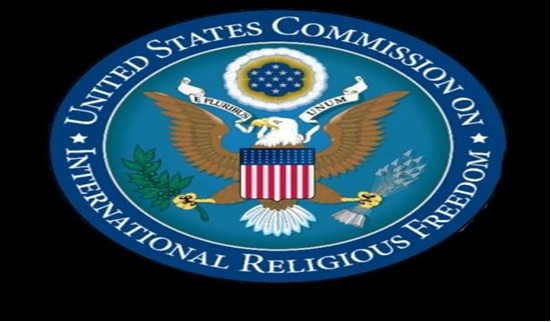‘Countries of Particular Concern’ (CPC)
News
- According to United State’s Secretary of State Antony Blinken, the following nations have been named ‘Countries of Particular Concern’ (CPC) for having engaged in or tolerated particularly severe violations of religious freedom” are China, North Korea, Pakistan, Cuba, Eritrea, Iran, Nicaragua, Russia, Saudi Arabia, Tajikistan, Turkmenistan, and Myanmar.
- Also listed as “Entities of Particular Concern” by Mr. Blinken are the Taliban, al-Shabab, Boko Haram, Hayat Tahrir al-Sham, the Houthis, ISIS-Sahel, ISIS-West Africa, al-Qa’ida affiliate Jamaat Nasr al-Islam wal-Muslimin, and Boko Haram.
- In a press conference, Mr. Blinken said that since Congress passed and implemented the International Religious Freedom Act in 1998, promoting the freedom of religion or belief has been a central goal of American foreign policy.
- The Central African Republic, Algeria, Azerbaijan, Comoros, and Vietnam have also been placed on Blinken’s “Special Watch List countries for engaging in or tolerating severe violations of religious freedom.”
About CPC
- The US Commission on International Religious Freedom (USCIRF) ranks the designation of the CPC as its highest recommendation in regards to violations of international religious freedom. Countries on the Special Watch List follow it in case of serious violations.
- This is consistent with the 1998 International Religious Freedom Act, which was enacted to advance religious freedom as an American foreign policy objective.
- The Act seeks to defend the rights of people who are persecuted abroad for their religious convictions and activities, as well as to advance greater religious freedom in nations that either violate or condone such violations.
- About USCIRF
- The International Religious Freedom Act of 1998 (IRFA) established the USCIRF, an impartial, bipartisan organization tasked with keeping an eye on global instances of religious freedom violations and recommending policies to the President, the Secretary of State, and Congress.
- It is not an advocacy group or NGO; rather, it is an organization established by Congress.
- Nine part-time commissioners chosen by the President and the leaders of the House and Senate’s opposing parties serve as its leaders.
| Religious Freedom In India
What is religious freedom? The freedom to preach, practice, and spread any religion one chooses is a fundamental human right. This right also gives everyone the chance to spread it without worrying about government interference. Furthermore, the state expects it to be practiced in a friendly manner within the nation’s borders. What is the need for religious freedom in India? ● Many different faiths and religions are practiced by people in India and aOutside of the six major religions—Hinduism, Jainism, Islam, Buddhism, Sikhism, and Christianity—there are 4,641,403 adherents of other faiths, according to data from the Pew Research Center for 2021. ● Therefore, it is essential to defend the rights pertaining to the faith of each and every religion given the diverse population that adheres to various religions and beliefs. Constitutional Provisions For Religious Freedom In India Articles 25–28 of the Indian Constitution protect the fundamental right to freedom of religion in that country. ● Article 25: Freedom of conscience and unrestricted practice, profession, and dissemination of religion. ● Article 26: The right to oversee religious affairs. ● Article 27: Freedom to pay taxes for the advancement of any specific religion. ● Article 28: Freedom to attend religious instruction or religious worship in certain educational institutions. ● Additionally, minorities’ interests are protected under Articles 29 and 30 of the Constitution. Secularism In India ● The word “secular” was added to the Constitution’s preamble by the 42nd Amendment in 1976. India is a secular nation that does not have a state religion, meaning it does not practice any one religion. ● The Supreme Court ruled in Ahmedabad St. Xavier’s College v. State of Gujarat (1975) that secularism is neither pro- nor anti-god. It simply makes sure that no one is treated differently because of their religion or lack of belief in God when it comes to matters of state. ● India Vs US Secularism: ○ India adheres to the ideas of “neutrality” and “positive role” toward religion, in contrast to the US. The State has the authority to enact laws pertaining to religion, safeguard minorities, and establish policies regarding religion. ○ The US adheres to the “non-interference” principle when it comes to religious matters. The State is not allowed to intervene in matters of religion. |
Source: newsonair
Disclaimer: All efforts have been made to represent India accurately and as per India government. However, Universal School of Administration, Bengaluru and its associated people do not own any responsibility for the correctness or authenticity of the same.
Please notify on the email: [email protected] if any inconsistency is found for the factual correctness.




